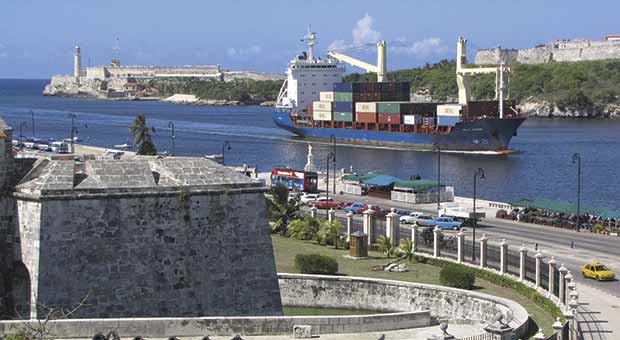“There will be no concessions or setbacks” is the title of the first journalistic work published in the Cuban press on the new Law on Foreign Investment, which will be discussed in the Cuban National Assembly in the coming days.
Deputy Jose Luis Toledo Santander, Chairman of the Parliamentary Committee on Constitutional and Legal Affairs, gave an interview in which he gives some hints of the developments new legislation will bring: it reinforces the guarantees to investors and “sets the priority of foreign investment in almost all sectors of the economy, especially those related to the production. “
All this is accompanied by “tax bonuses and total exemptions under certain circumstances, as well as easing the customs laws to encourage investment.”
Furthermore, they will establish “an investment portfolio, so that those who wish may know the areas of interest to the country. This folder will also bring a breakthrough in terms of the documentation that is required to make the investment, so that the process will be more agile. “
The draft is being discussed at provincial level by Cuban deputies, who have expressed concerns about “the labor rights of Cubans who would work on these projects, the terms of validity for investment and the protection of the National Heritage (….) “.
In the past, foreign investment did not seem to be among the priorities of the Cuban government. Economist Juan Triana noted that “the persistence of a design and management in excess discretionary of FDI prevented and prevent the creation of jobs in sectors with higher productivity or linkages to the domestic economy.”
But now the subject occupies the spotlight on Cuba. President Raul Castro has mentioned the issue in each of his last speeches: in the last session of the National Assembly, at the opening of the presidential summit of CELAC and the recent closure of the Congress of the Confederation of Workers of Cuba (CTC by its Spanish acronym).
Talking to some thirty of his Latin American colleagues, Raul Castro said in January that they have to create “appropriate policies in the relationships with foreign investment and transnational corporations operating in the countries comprise the CELAC.”
He then added an emphatic sentence: “It is undeniable the benefits of foreign direct investment on the economies of the region and the capital injections of transnational companies operating in it.”
Almost a month later, at the end of the Congress of the CTC, the Cuban president said: “We must consider the urgent need to promote and attract foreign investment in the interests of boosting economic and social development.”
The “compelling need” was old news after the Cuban Foreign Minister Bruno Rodriguez traveled to Japan in November 2013 and discussed with a Japanese media outlet that Cuba had in its plans to pass a new law to attract foreign capital.
The current Foreign Investment Law 77 will be no more in days. It is not known exactly when it will be, but the announced special session of the Cuban Parliament, and all signs point to its successor is just weeks away from seeing the light.










